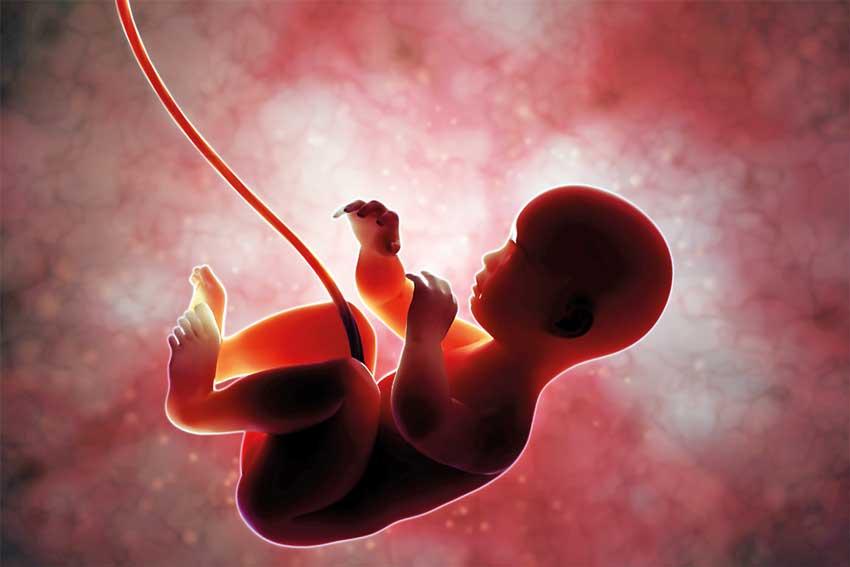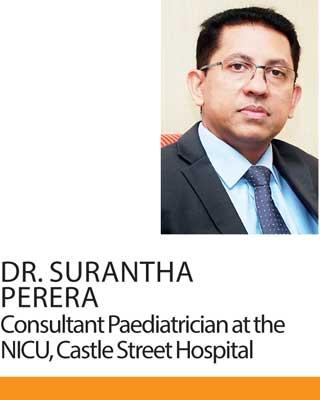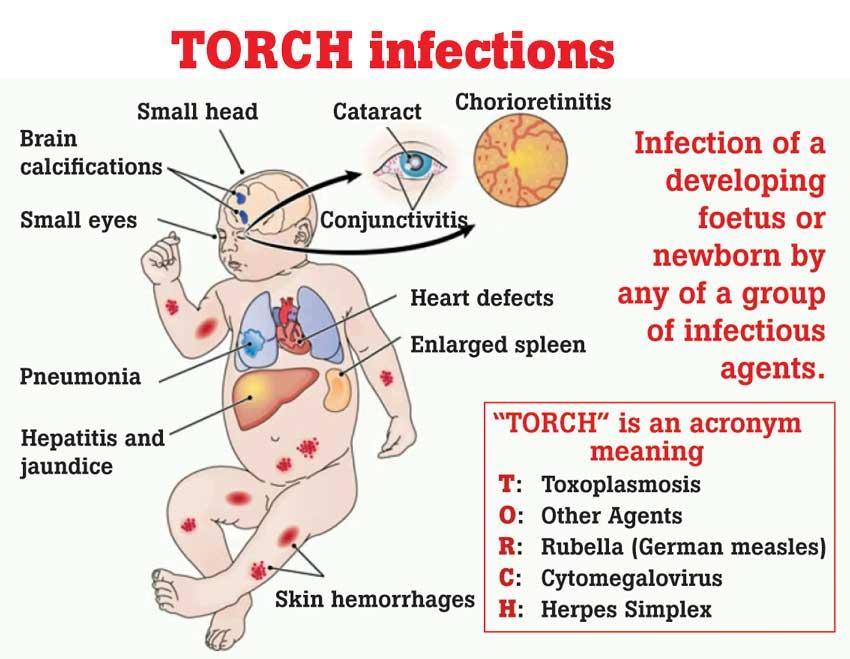Reply To:
Name - Reply Comment

 Pregnancy is a joyful news for many and is sometimes a long-awaited news for some, but the entire duration of pregnancy is one that should be spent with much care. Prenatal infections, also known as infections that occur before the birth of the baby, can occur in any trimester of the pregnancy. Speaking to the Daily Mirror Dr Surantha Perera, Consultant Paediatrician at the NICU, Castle Street Hospital for Women and Vice President of the Sri Lanka Medical Association, shared that if the infections occur during the embryo stage it can cause issues with the development of the embryo and the embryo could even get destroyed. In later stages, depending on the trimester and the infection- the impact and complications
Pregnancy is a joyful news for many and is sometimes a long-awaited news for some, but the entire duration of pregnancy is one that should be spent with much care. Prenatal infections, also known as infections that occur before the birth of the baby, can occur in any trimester of the pregnancy. Speaking to the Daily Mirror Dr Surantha Perera, Consultant Paediatrician at the NICU, Castle Street Hospital for Women and Vice President of the Sri Lanka Medical Association, shared that if the infections occur during the embryo stage it can cause issues with the development of the embryo and the embryo could even get destroyed. In later stages, depending on the trimester and the infection- the impact and complications
could vary.
 He explained that prenatal infections could be of either viral, bacterial or protozoal origin and the most common infections were viral infections. He also shared that if the infections were one of the TORCH infections (Toxoplasmosis, Rubella, Cytomegalovirus, Herpes), then serious complications could occur.
He explained that prenatal infections could be of either viral, bacterial or protozoal origin and the most common infections were viral infections. He also shared that if the infections were one of the TORCH infections (Toxoplasmosis, Rubella, Cytomegalovirus, Herpes), then serious complications could occur.
“These infections can cause serious complications depending on the trimester the mother contracted the infection in. In infections like chicken pox, if it occurs during the last trimester then there will be dominant skin lesions in the foetus and infant, while if it happens at 16-20 weeks, it could lead to loss of vision,” he said adding that even COVID-19 can affect the foetus, but it is uncommon for COVID-19 to transmit from mother to foetus however 1-2% cases of COVID-19 being passed from mother to the foetus have been reported. He also shared that if the mother contracts or has contracted sexually transmitted infections (STIs), it can also cause complications.
Preventive Measures are most important
Get vaccinated with all the necessary vaccines (Rubella, Tetanus) so as to prevent congenital Rubella infection and neonatal tetanus. Also protects the mother from these infections
Practice safe sex habits at all times, from the very first sexual encounter. Ensure responsible behaviour such as not having multiple
sexual partners.

What if an infection is detected?
If the mother seeks immediate medical attention when unwell during the pregnancy, doctors would test and diagnose the cause as soon as possible. “We do a STI test on every expectant mother to test whether the mother is infected with a STI and once detected, measures will be taken to ensure the disease wouldn’t be transmitted and to treat and manage any complications that can arise,” Dr Perera noted, sharing that since foetal medicine and surgery is not available in Sri Lanka, the medical professionals provide counselling for the parents during the prenatal period. “Once the baby is born, the medical professionals will look into handling the complications and in some cases, treating the complications. But, most complications will be lifelong and cannot be treated, only managed,” he remarked. Therefore, he stressed that taking preventive measures to prevent prenatal infections from an adolescent age is crucial to minimize and prevent the incidence of prenatal infections.